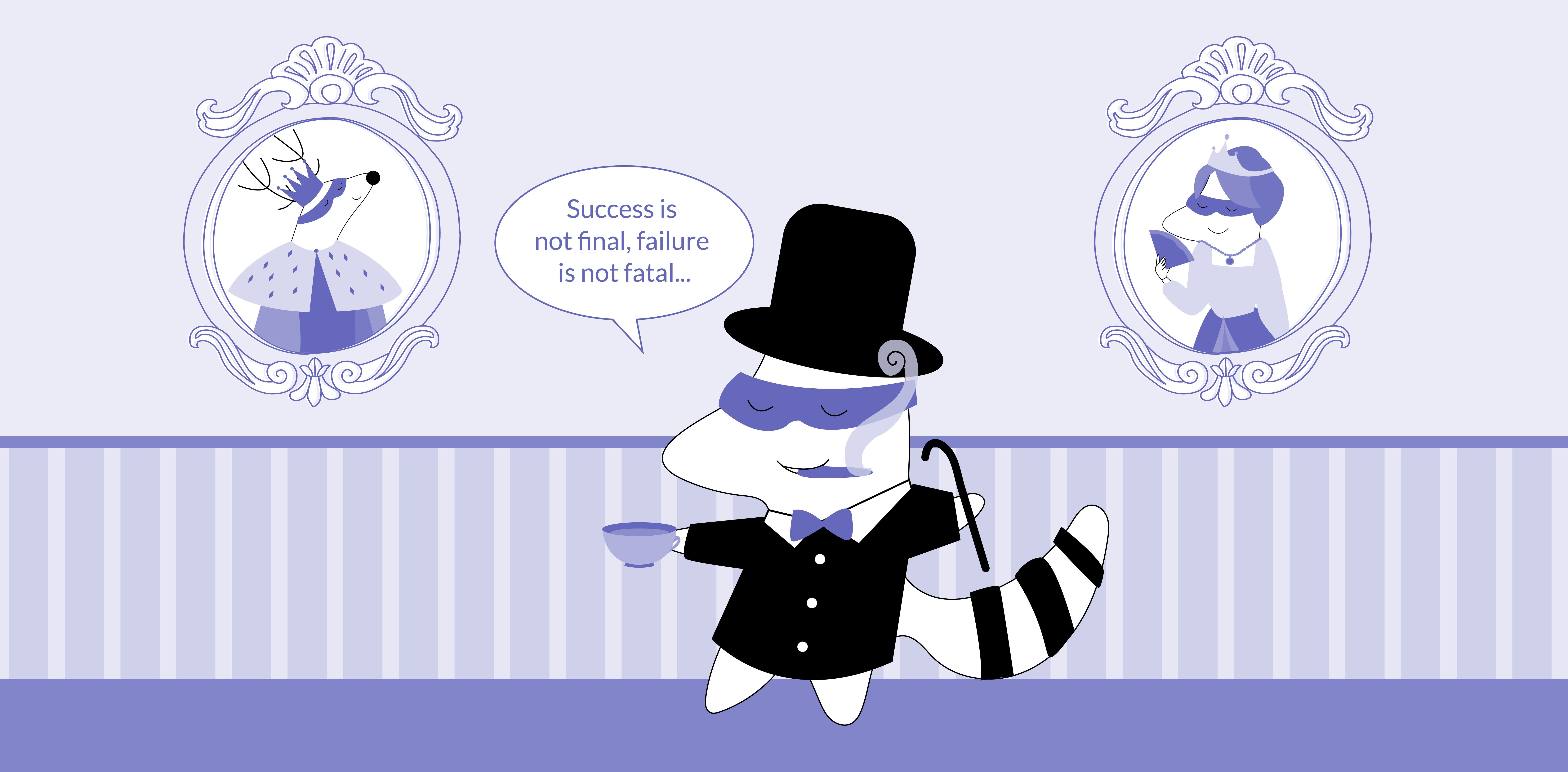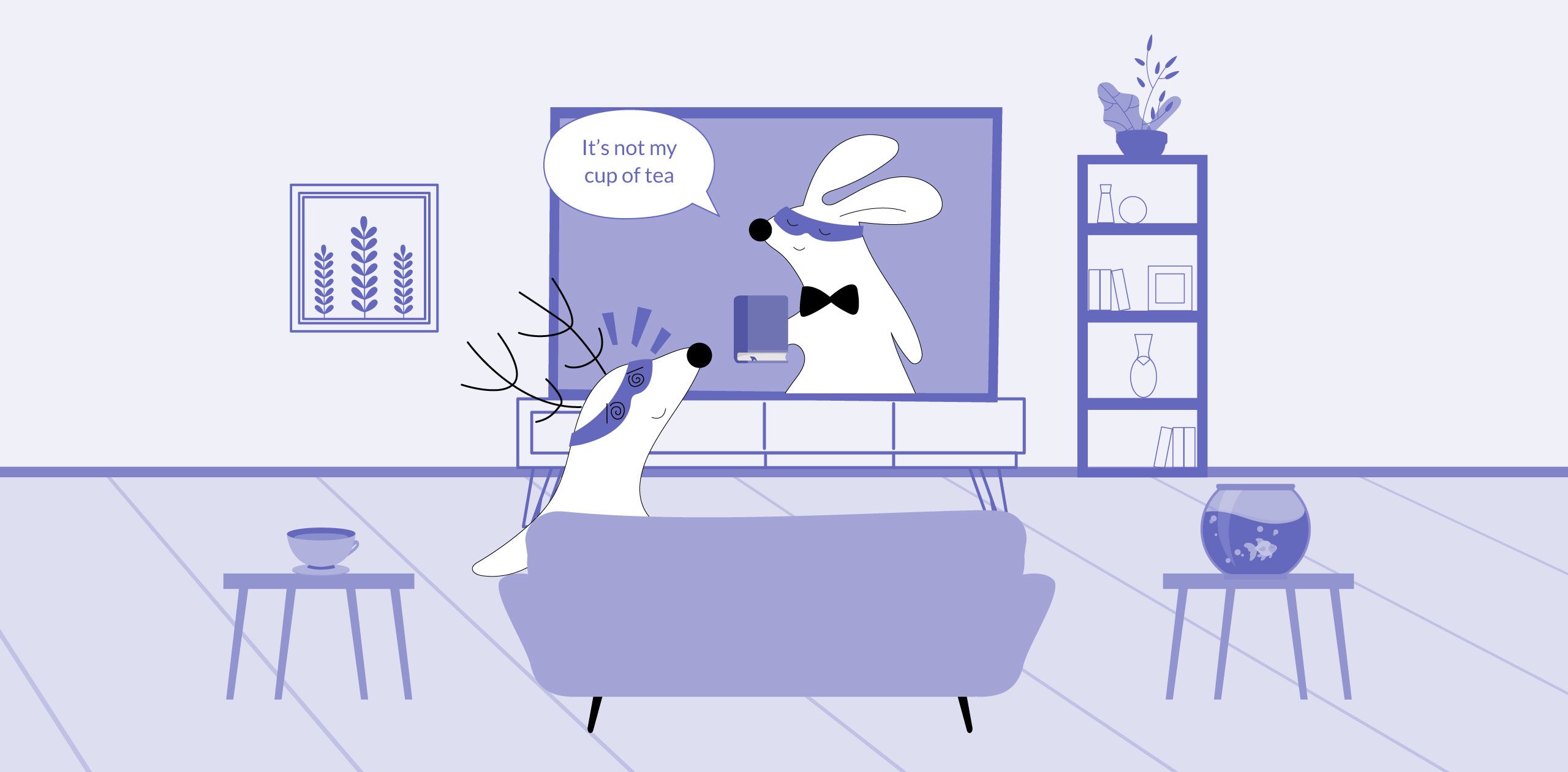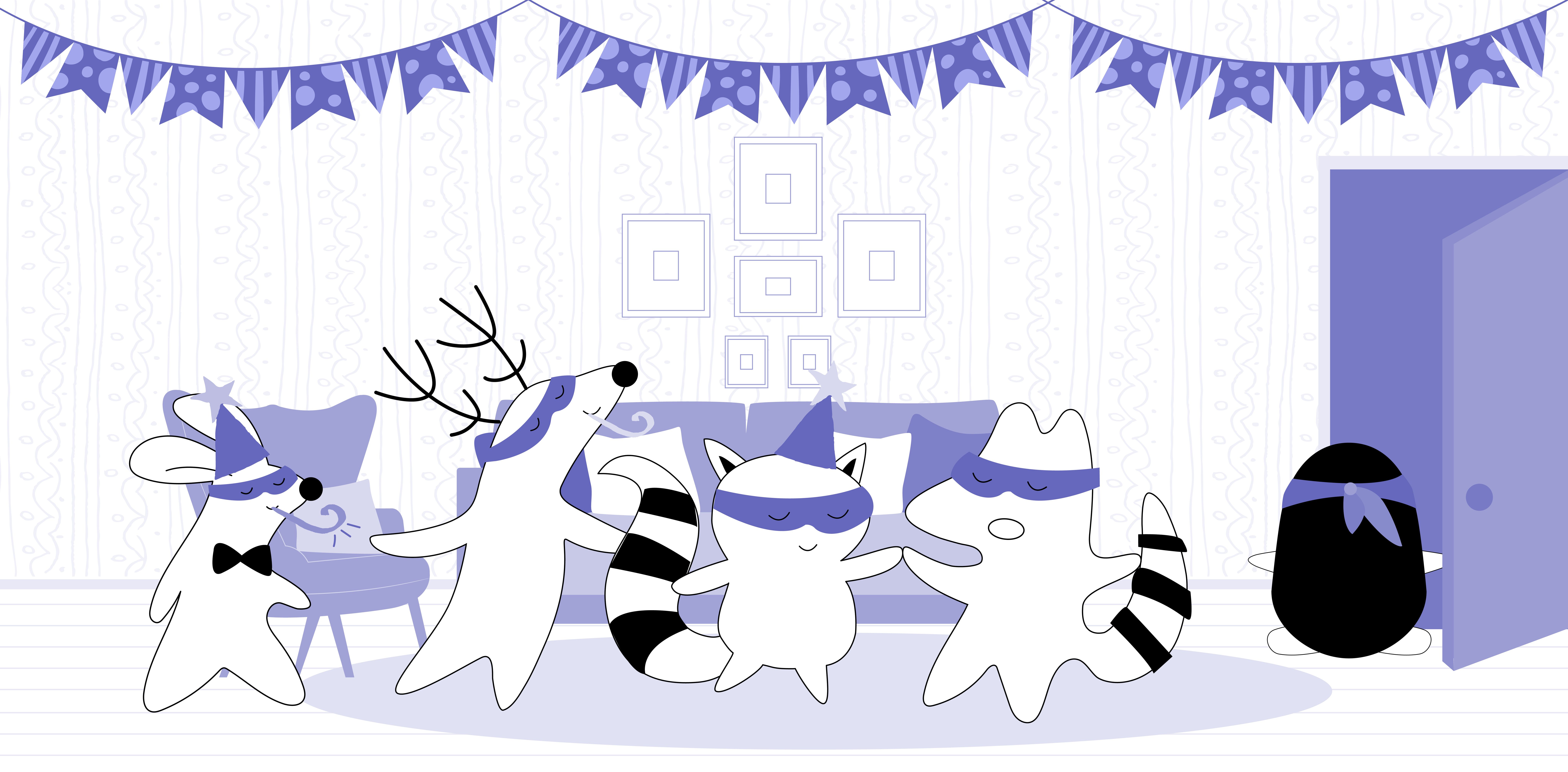
The infamous "Irish goodbye," or “Irish exit,” is a popular term generally used by the English and American to refer to the act of leaving a social gathering without saying goodbye to anyone.
Common names for the same type of disappearing among Europeans include what English called the “French exit” (which French people parry with filer a l’anglaise, i.e., “leaving the English way”), “Dutch leave,” and even polnischer Abgang (the “Polish exit” used in Germany) — all of which hint at negative ethnocultural stereotyping.
We’d prefer the most recent and fairly neutral version endorsed by Dua Lipa — going Houdini.
However, this phenomenon has always sparked curiosity and debate among those who have experienced or heard about it. While some may see this way of leaving a party as rude or disrespectful, others view it as efficient and socially acceptable.
But, beyond its surface appearance, the very concept of Irish goodbyes holds a deeper and richer meaning that reflects the cultural roots and social implications of this seemingly simple act. Below, we explore the real value behind it and, most importantly, what it has to do with Irish people.
Learn English with Langster
Where Does Irish Goodbye Come From? (Spoiler: Not Ireland)
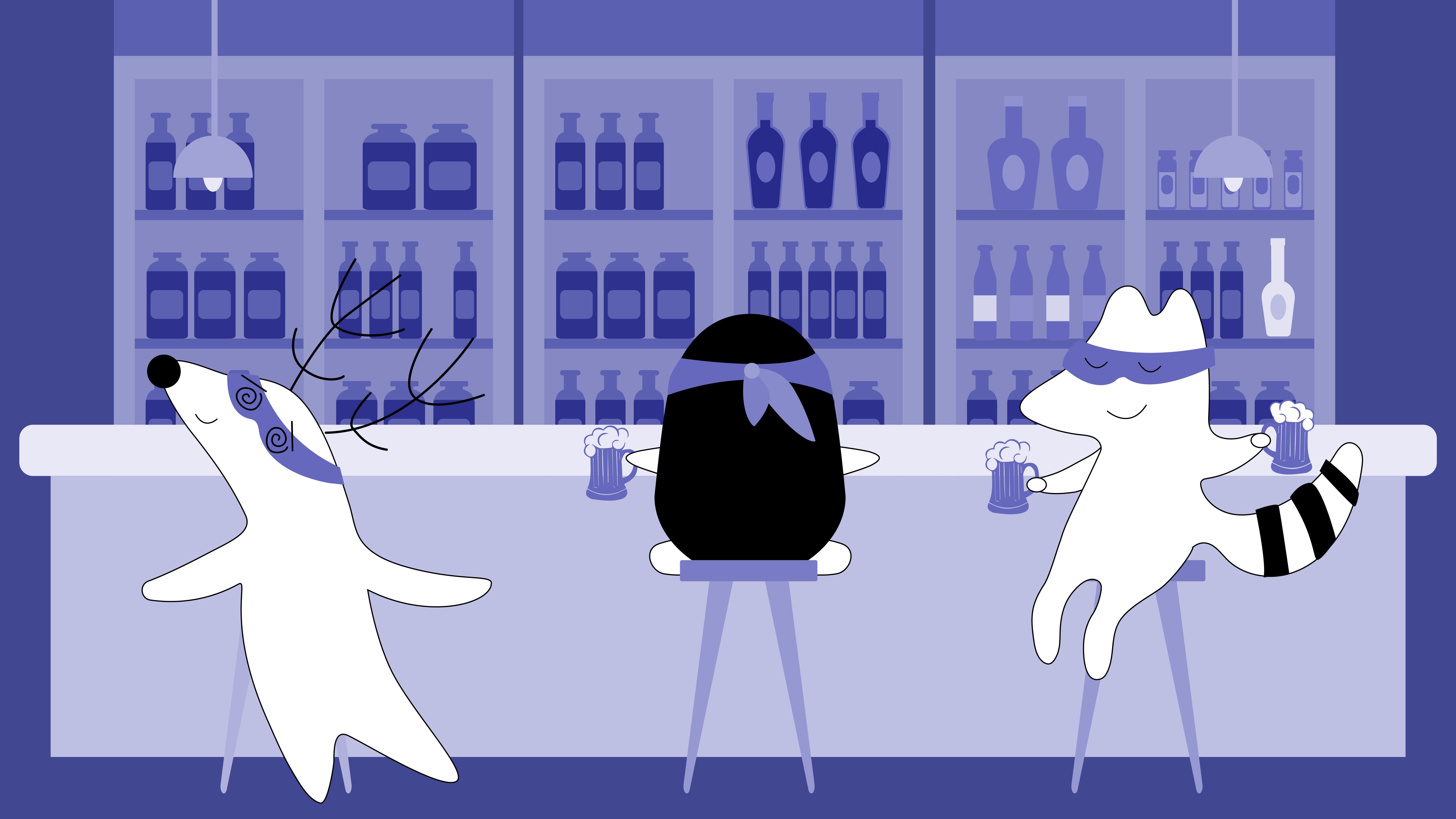
Contrary to popular belief, the term "Irish goodbye" is not exclusive to the Irish people or Ireland. Moreover, the origins and specific Irish connection to the Irish goodbye remain somewhat murky.
According to the neologism database at Rice University, the term is defined as “to leave a party, bar, or other social gathering to avoid having to say goodbye to acquaintances at the event” and appears to have originated in Boston, Massachusetts — an area known for its significant Irish-American community. So, outside of Ireland, for starters.
The university's description of the Irish goodbye specifically refers to it coming from a person who leaves “noticeably intoxicated and desires to leave without having to converse with anyone they know and reveal their state of intoxication,” once again tying this phenomenon to some sort of a stereotype — this time, the Irish drunkenness.
But, do you have to be drunk to perform the Irish goodbye? Not necessarily — especially considering there are alternative origin stories (although without much evidence).
At Irish Central, a writer states that the practice might be linked to Irish hospitality, typically accompanied by neverending chatter: “an Irish ritual of welcome is so elaborate and multilayered that it can take an entire afternoon just to make it through the initial greeting protocols.” So, when it’s time to leave, it’s easier just to sneak out than go for another round.
Conversely, a rugby star Donncha O'Callaghan — and an Irish person — offers a different perspective in his autobiography, speculating that the tradition may stem from the relative reservedness of the Irish, particularly when compared to other national teams he has encountered.
Yet another rumor has it that “an enraged woman coined the term after her second Irish boyfriend in a row disappeared without a trace at the end of a date” — pushing the term “Irish exit” even closer to “ghosting.”
The Real Meaning Behind the Irish Goodbye
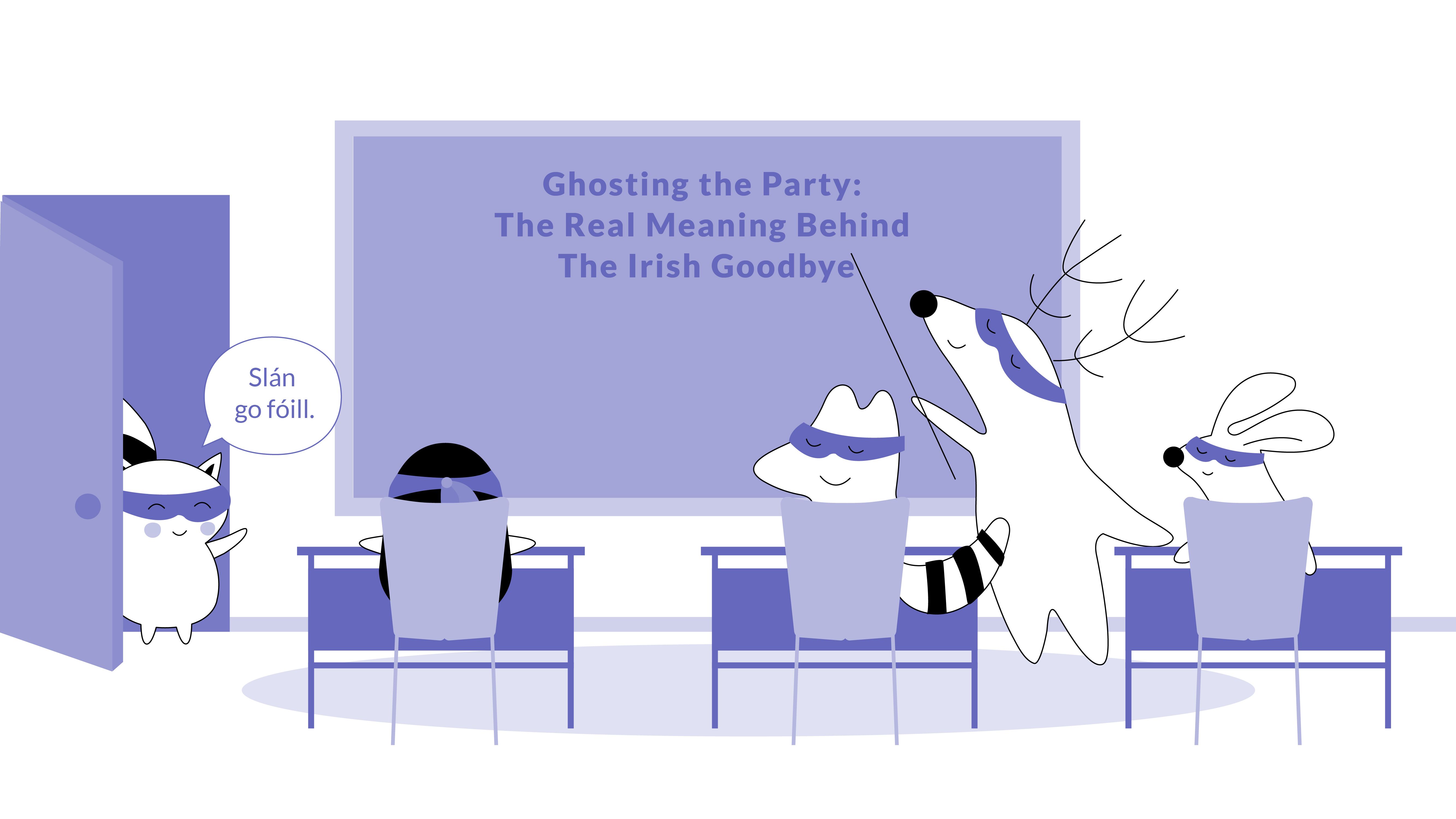
At its core, the Irish goodbye is not simply about leaving a party early or avoiding social obligations. It is rooted in the Irish cultural values of being considerate and not wanting to impose on others. In Ireland, it is considered impolite to make a showy exit or to demand attention when leaving.
The act of ghosting also reflects the Irish belief in independence and self-sufficiency. It demonstrates an individual's ability to take care of themselves and not rely on others for approval or validation. This can be seen as a form of respect towards both oneself and others.
So, how do the Irish say goodbye when they actually do? The real Irish equivalent for goodbye is slán go fóill, which literally means "goodbye for now," reflecting the Irish value of not wanting to draw attention or cause a disturbance, especially when leaving a social gathering.
It also aligns with the concept of "just popping out," which is commonly used by the Irish when stepping out briefly and not wanting to make a fuss.
Social Implications
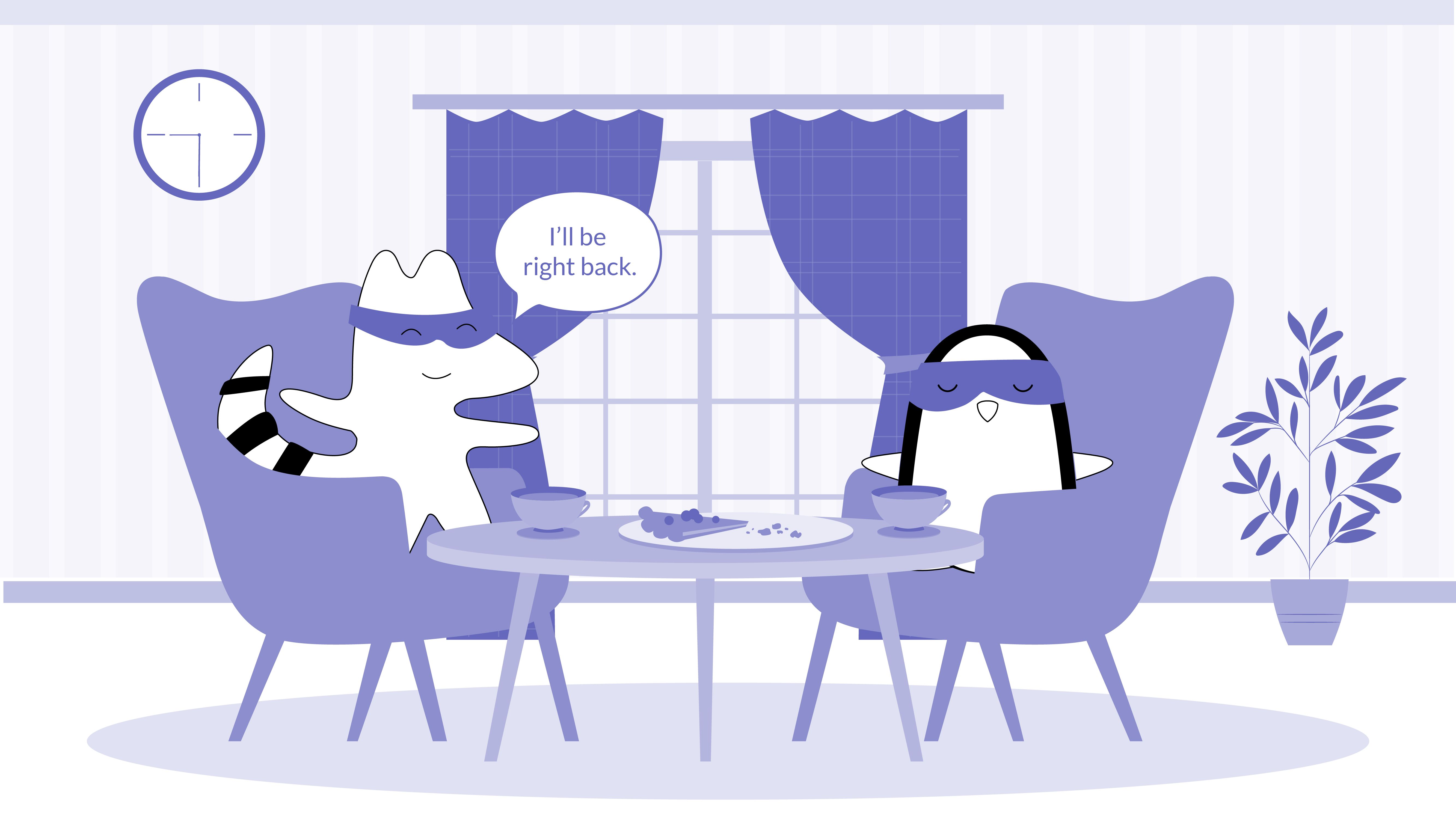
The Irish goodbye may seem like a harmless act, but its social implications run deep.
In a society where goodbyes are expected and even demanded, this practice can be seen as a rebellious act. It challenges the norm and breaks away from societal expectations of proper behavior.
Moreover, the Irish goodbye also reveals cultural differences and values. In some cultures, saying goodbye is seen as a way to show gratitude and respect towards hosts and other guests. This may not align with the Irish belief in privacy and non-intrusiveness.
As a result, the Irish goodbye can sometimes lead to misunderstandings and conflicts.
Examples of the Irish Goodbye
The Irish goodbye may seem like a foreign concept to some, but it is a common practice among many cultures. In fact, you may have already experienced it without even realizing it.
Here are some examples of how the Irish goodbye manifests in different situations:
- Leaving a party without saying goodbye to the hosts or other guests.
- Quietly slipping out of a gathering and heading home without drawing attention.
- Saying, "I'll be right back," and not returning for the rest of the event.
- Making an excuse to go to the restroom or grab something from your car but never returning (comes in handy on boring dates that feel like a waste of time).
Takeaway

The Irish goodbye may seem like a simple act, but it holds deep cultural and social significance. It reflects the Irish values of privacy, independence, and consideration towards others. Whether you see it as rude or efficient, one thing is for sure — the Irish goodbye will continue to be a topic of fascination and debate among those who encounter it.
For more cultural insights, make sure to download our Langster app, and start learning English with stories! And, next time you find yourself ghosting a party, remember the cultural roots and real meaning behind this intriguing tradition. Slán go fóill!
Learn English with Langster







